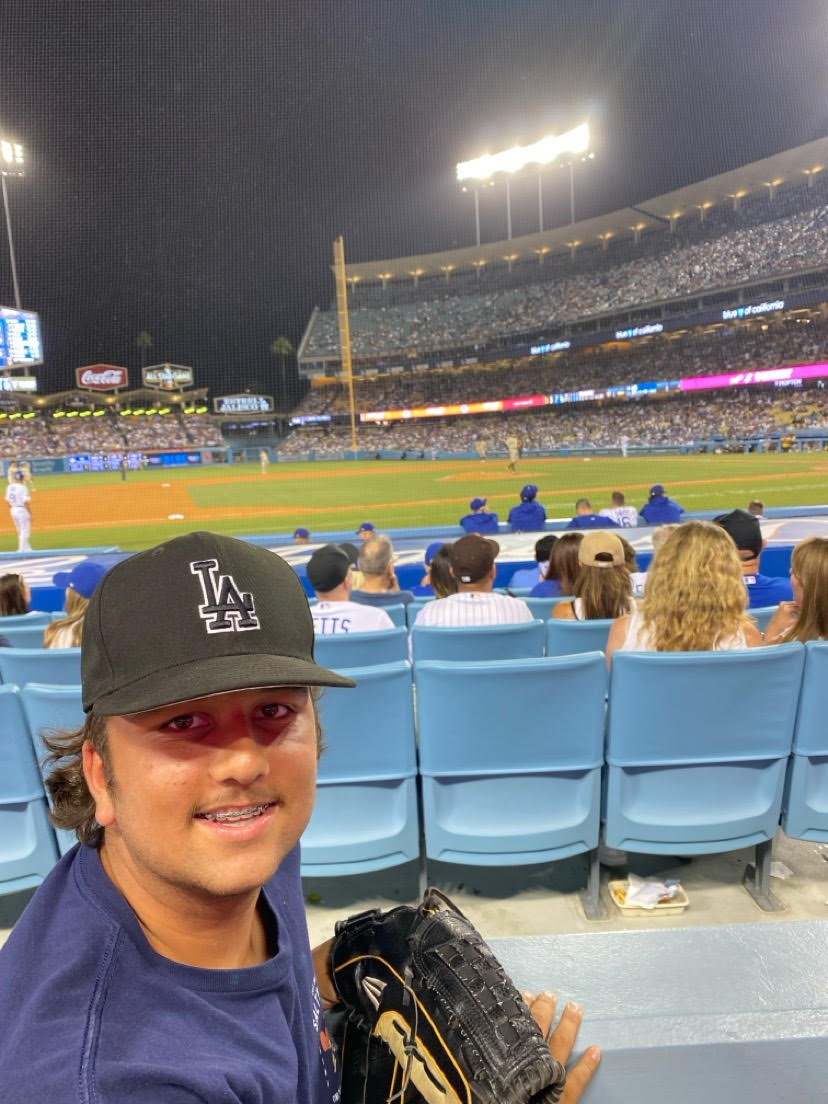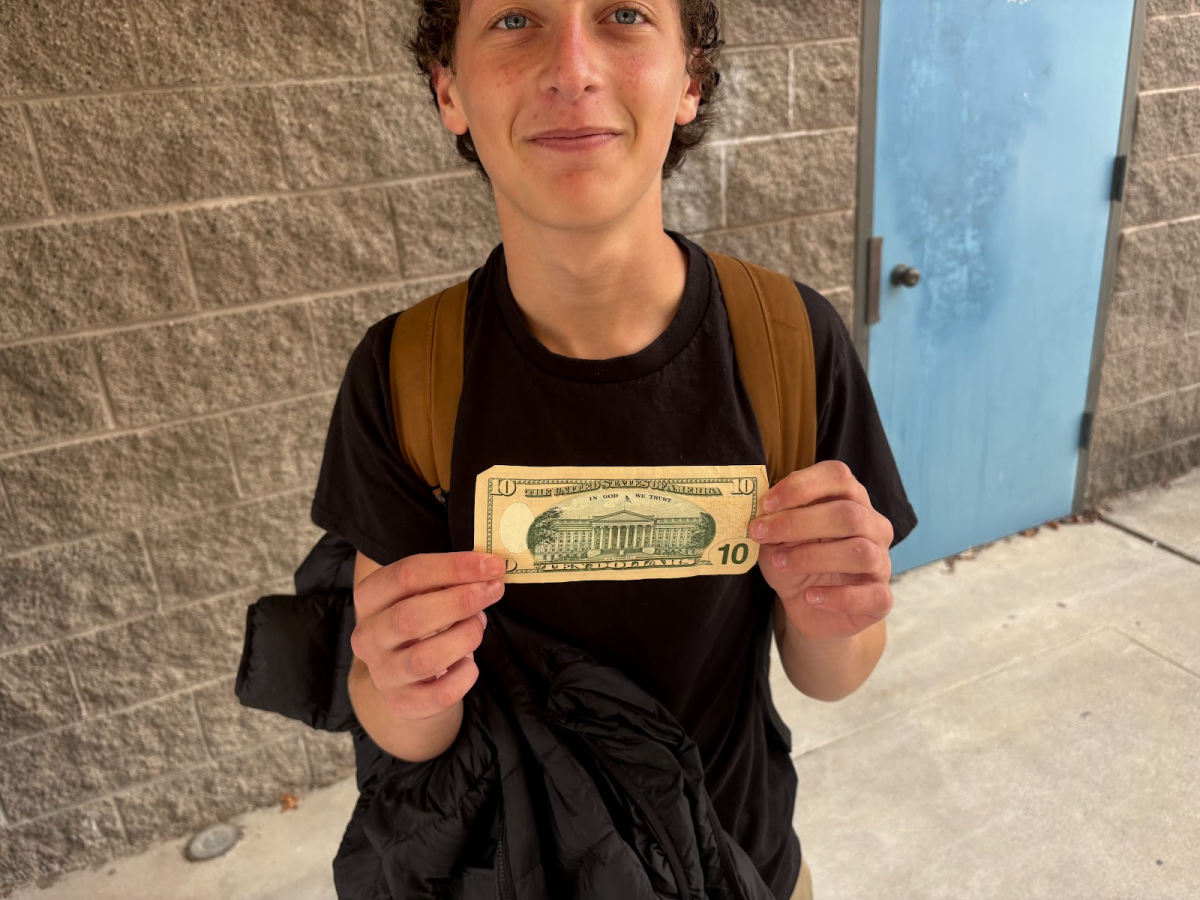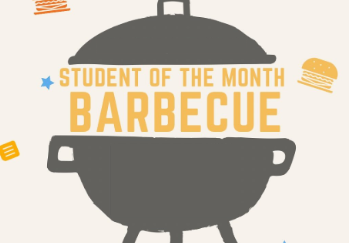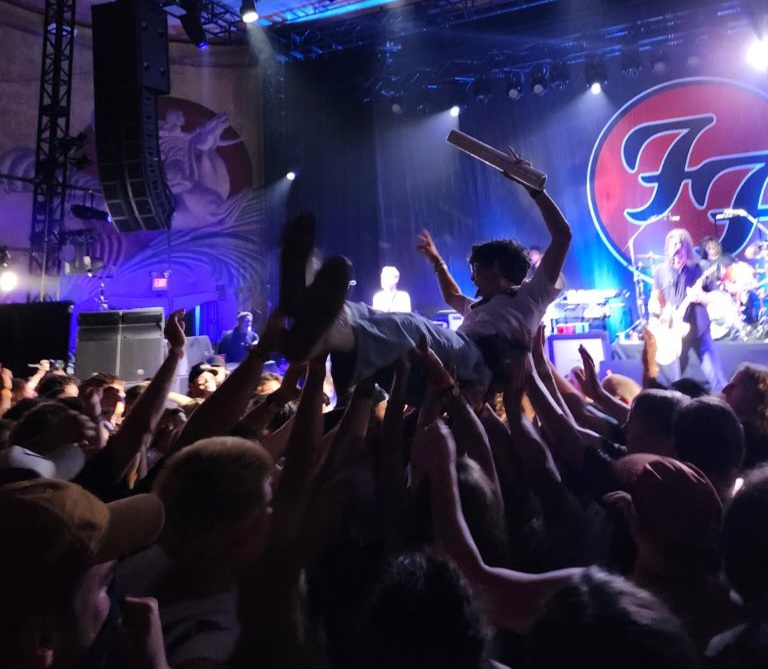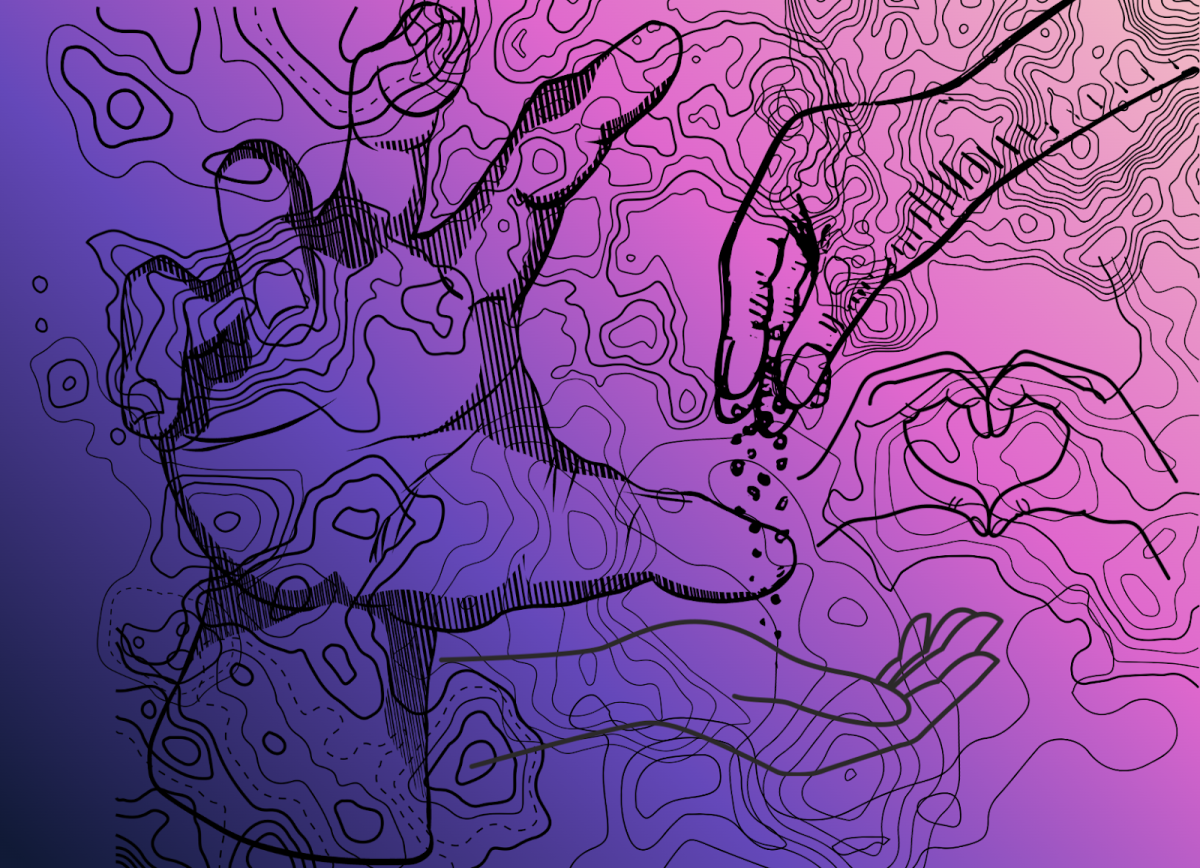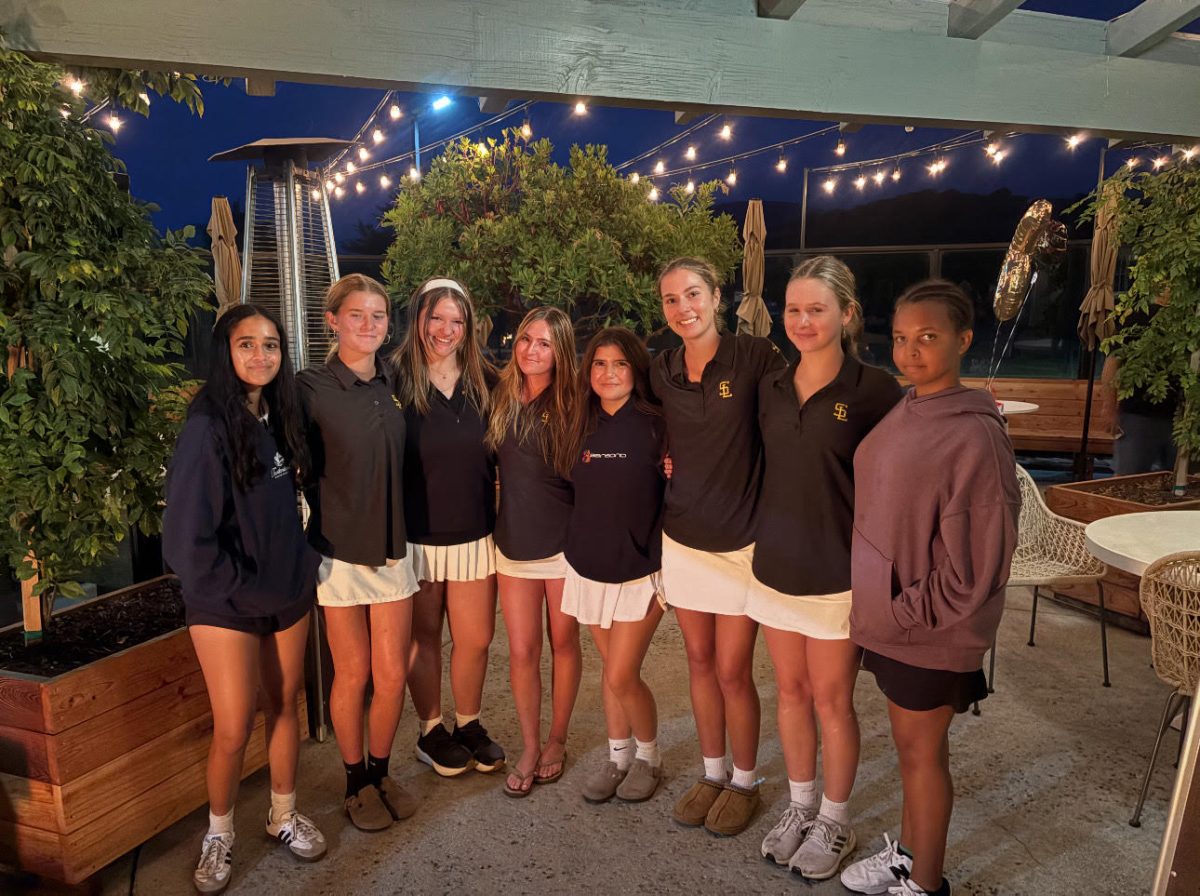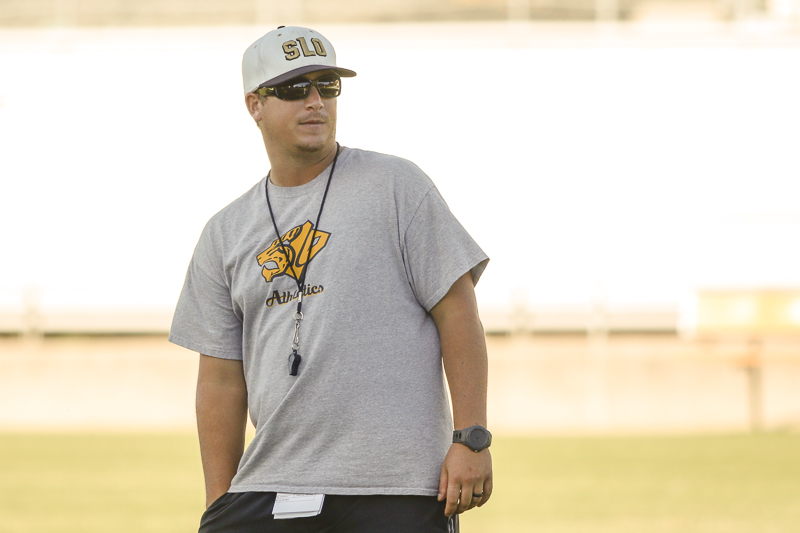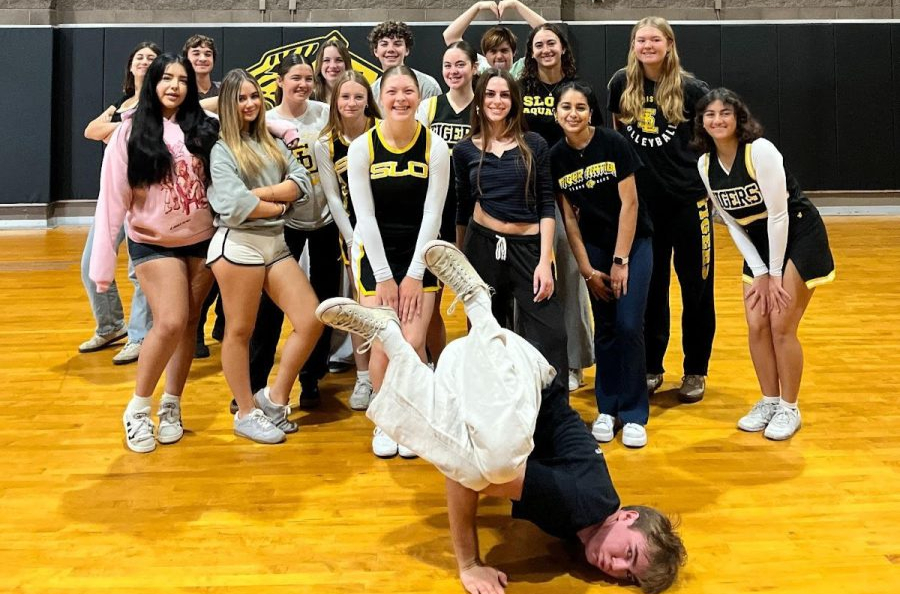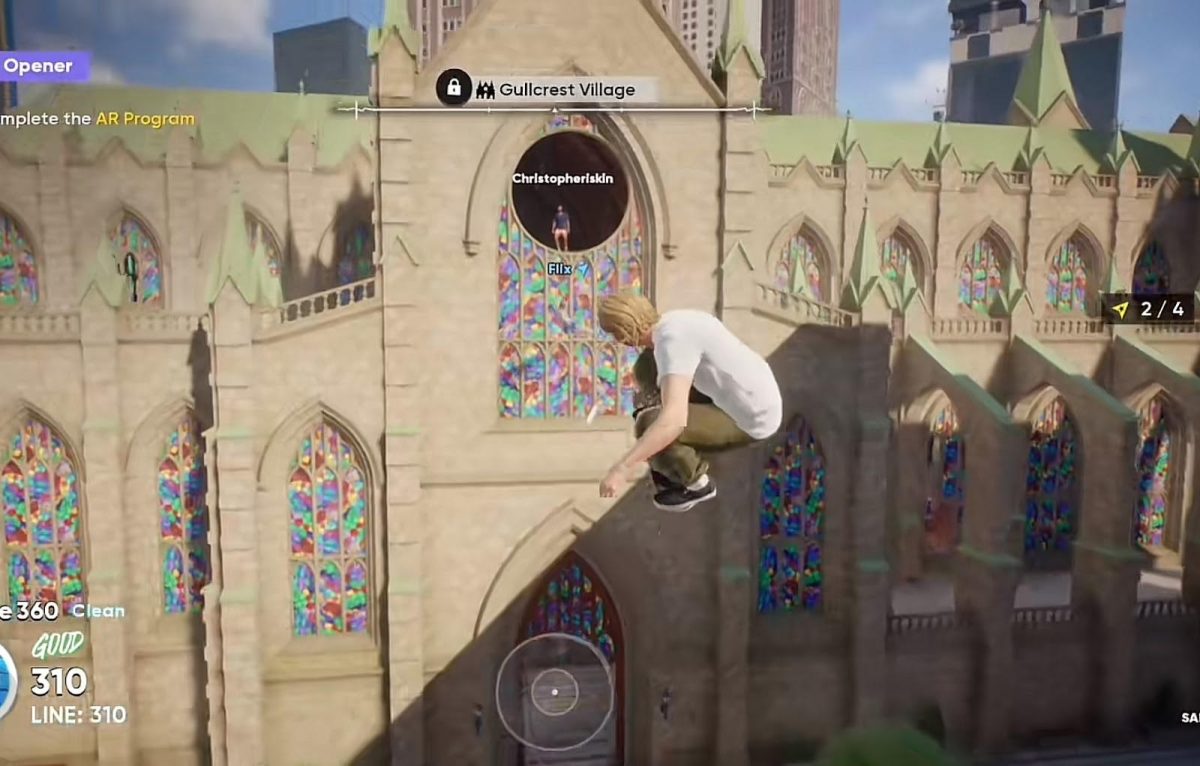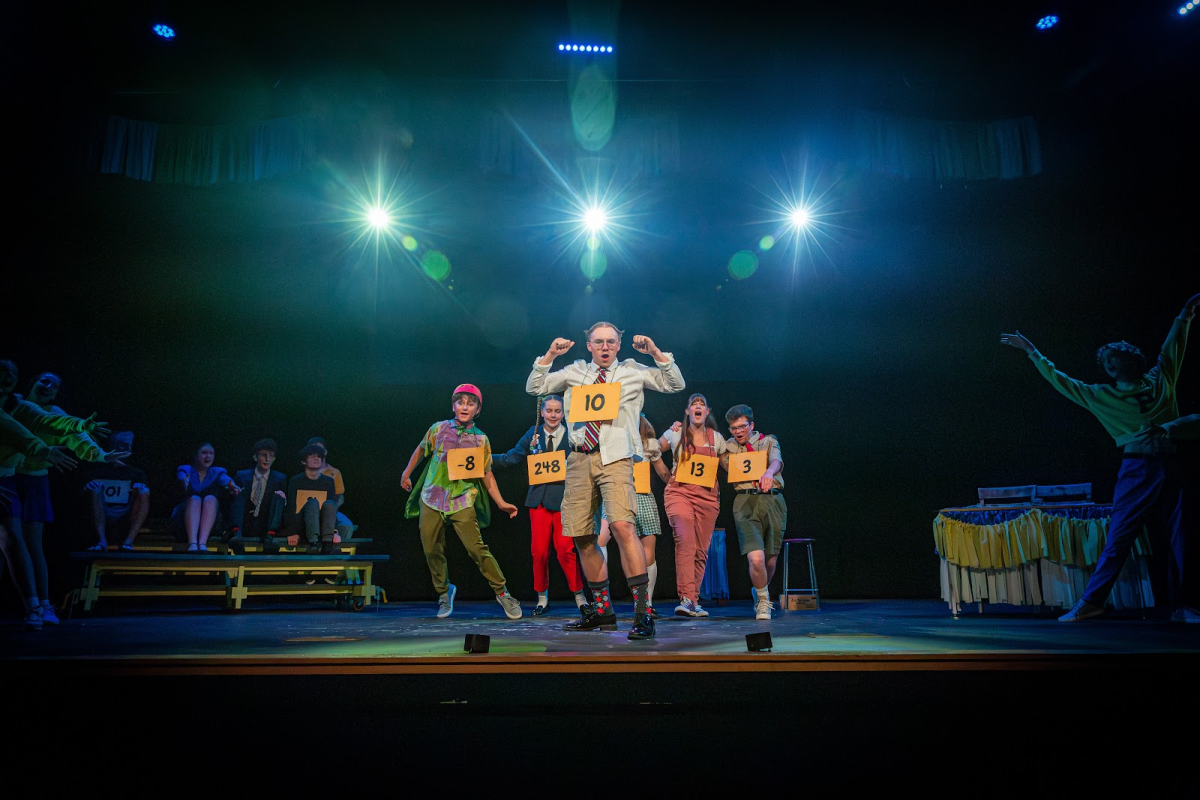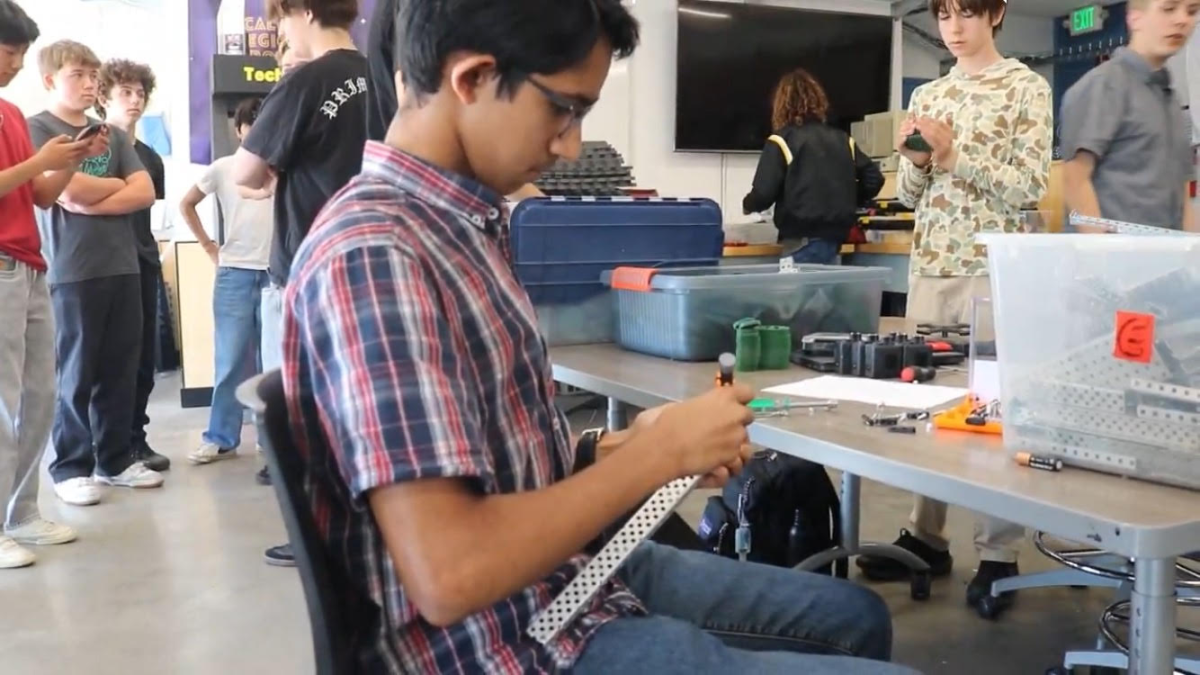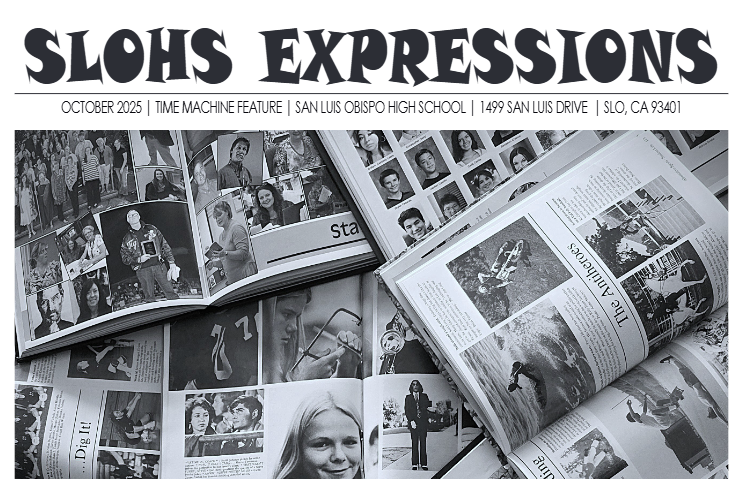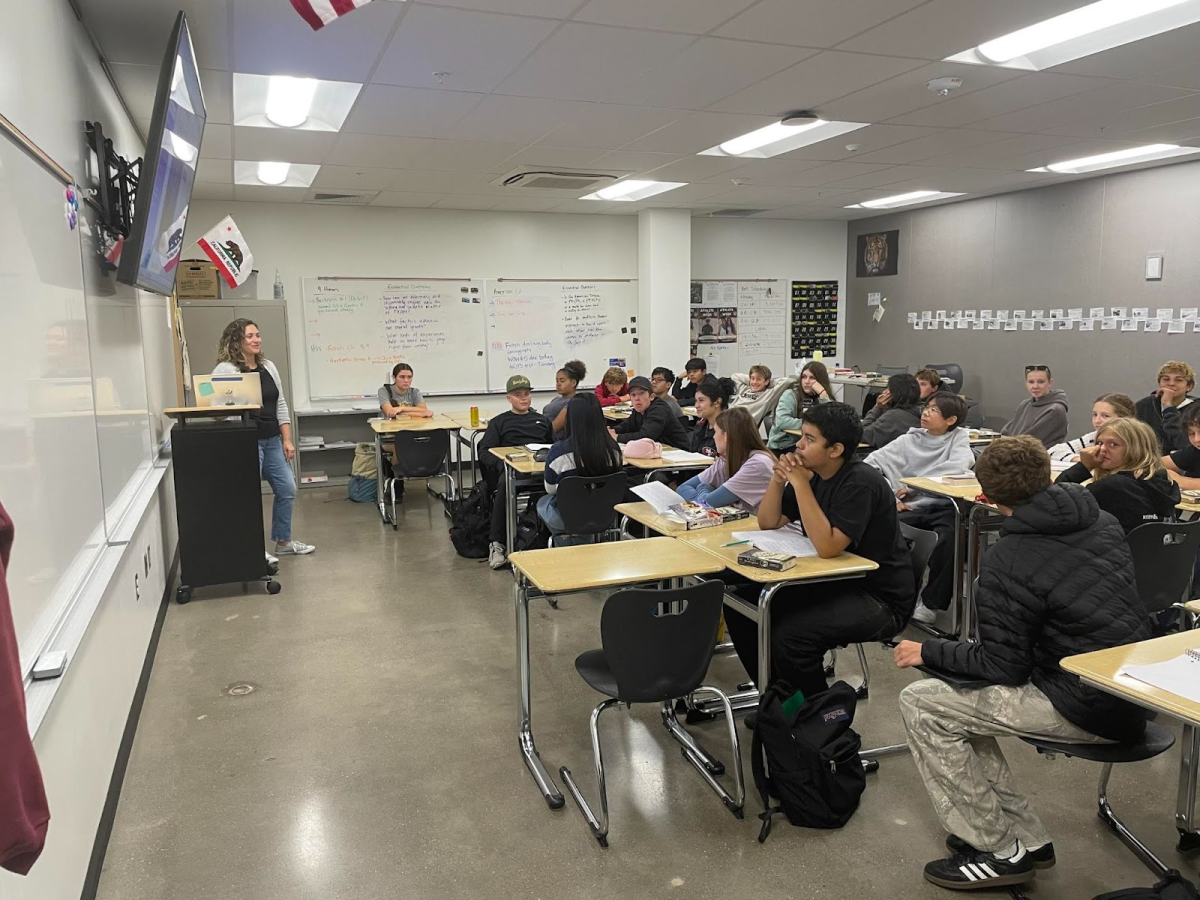The most used slang term measured per state. Photo courtesy of Authority.org
Over the years, San Luis Obispo High School has experienced countless changes to the English language. Back in the 1950s, American high school students used the term “greaser” in order to describe a “tough guy” or use “cut the gas” to tell someone to be quiet. In the 1980s, students used the words “bodacious or radical” to describe someone as amazing.
The tradition of massacring the English language has continued well into the 21st century, and this list attempts to provide a comprehensive description of the slang terms used at SLOHS.
Fanum Tax:
Fanum tax is an internet slang term that began with the american streamer Fanum. Since its original use, the phrase has been used in various music videos which have helped popularize the term.
“It comes from a streamer who eats food, and would tax ‘fanum taxes’ on other people’s food because he was something Fanum or whatever,” said senior Arlo Grieshop.
Rizz
Rizz originally began as a type of Baltimore street slang. Its first major success occurred after the youtuber Kai Cenat used the term in one of his videos on how to “seduce women”.
“It’s short for charisma, as in Rizz instead of your ability to charm someone,” said Grieshop.
Cooked
The use of cooked as a slang word likely began in cycling American-Western culture as early as the 1900s. It referred to the feeling of exhaustion after a long ride and deciding to take a rest. Its colloquial use likely began in 2019 when a post about the Utah Jazz basketball team earned 80,000 likes, likely its first popular use.
“If a person is cooked it means essentially that they are done for, that they are dead meat, and can’t do something, And when someone is Cooking, it means that they’re gonna be successful in something,” said junior Joaquin Rueda.
Griddy
The dance move was originally invented by a Louisiana football player, Allen “Griddy” Davis. Its first televised use was during the 2019 matchup vs Texas. Since then it has been turned into an emote in Fortnight.
“It’s like a dance move. It’s like sweeping your feet,” said senior Chase Phillips.
Facts
Its first use is hard to pinpoint, but it likely began in New York as a way to agree with someone.
“If I were to say, ‘Ant Man and Wasp was such a great movie’ you could say [that’s] facts, like ‘yeah I totally agree,’” said Phillips.
Simp
The term simp (originally short for simpleton) was used as early as the 1900s. The slang term began spreading on the internet after it was used by early rap artists. Its biggest launch into popularity was in 2019, when TikTok User @pollo.Boyy created a trend called “simp nation”.
“It could be used in two terms, almost ‘white knighting’ another individual which is like ride or die [or] like I will argue and protect this person at all costs,” said Phillips.
Touch Grass
It’s unknown exactly where the term originated, but it was likely first used as an insult on Twitter. Since then it has been widely used in co-ops as a coping mechanism for people that are bad at the game.
“It’s like if you’re on the internet all the time, or if you’re on a videogame all the time, people tell you to touch grass which basically means go outside and experience the ‘nicer things,’” said Phillips.
Sus
In 2023 it was the number one slang term used by teens. The term was most used when the “among us” indie game gained popularity.
“It’s short for suspicious. If you’re acting in an obscene or what some kids say ‘freaky way’ toward another person they might call you sus,” said Phillips.
Although SLOHS students sometimes struggle to keep up with the lingo, they’re not alone. In the past few decades, some slang terms that used to be popular have since fallen out of fashion. Despite this, many adults continue to use slang from when they were in highschool. This is a list of the Slang terms some of our teachers used during their high school experience.
Hella
In California hella has been measured as one of the most frequently cited slang words. It likely emerged from Oakland in Northern California during the 1970s, gradually spreading south where it gained peak popularity. There is a second theory that the word originated from Toronto Canada, when it appeared in a 1987 article by the Toronto Star. The word itself is a close synonym to “very”.
“I often question whether people that were born and raised on the Central Coast have the right to use Hella. Personally I would draw the line around San Jose or Santa Cruz If I was being generous, but it’s still in rotation and it’s been there for a while,” said English teacher Brian Moss.
Busted
Possibly dated back as far as 1865, where the term “bust” was used in reference to police raids. Since then it has grown to mean any criminal charge, and later just for being caught.
“You could take it literally, like broken, but it is used to refer generally to people or the aesthetics of something,” said Moss.
TomBrokeoff
This is a slang term that originated directly from Moss. It has yet to catch on. . .
“It’s a play on Tom Brokaw who [was] a famous newscaster of the era,” said Moss.
After recording the words in current use, I would like to project our school’s vocabulary for the next few years. This list is a prediction of slang terms that will be used in SLOHS, based on the vocabulary my nine year old sister uses.
Skibidi
Skibidi began as an internet phenomenon from the viral video short series of Alexey Gerasimov, which features surrealist videos of an animated head spinning in a toilet bowl. The word itself has no inherent meaning, and should not exist.
“Something Generation Z shouldn’t know,” said nine year old elementary school student Quinn Durrant,
Slay
Its current definition of slay comes from 1970 LGBTQ culture where it meant something along the lines of “killing it”. The word was expanded into popular use when Beyonce used the word in her 2016 song “Formation”.
“The word slay means you’re slay, another synonym for slay is preppy or aesthetic. The Aesthetic is less [close] and preppy is similar to it but there’s a huge difference. But it’s like the similarist synonym,” said Durrant.
Preppy
The word preppy dates far back and was originally associated with northeastern Ivy League students. It became popularized after John F. Kennedy and Jackie Kennedy Onassis became associated with the offshoot word “prepster”. Its current form can either be used as an insult or compliment, but generally refers to someone’s style of clothing,”
“Preppy is the opposite of making fun unless you’re using it in a context that is making fun of [them],” said Durrant.
At SLOHS, both students and teachers are adapting to slang that has completely changed how a generation communicates. With the rapid development of the internet, many of these phrases will continue to change and adapt at near breakneck speed, continuing to define the English language.
Sources: rehook.bike, wikihow.com, sportingnews.com, dictionary.com, today.com, englishstackexchange.com, dailycal.org

